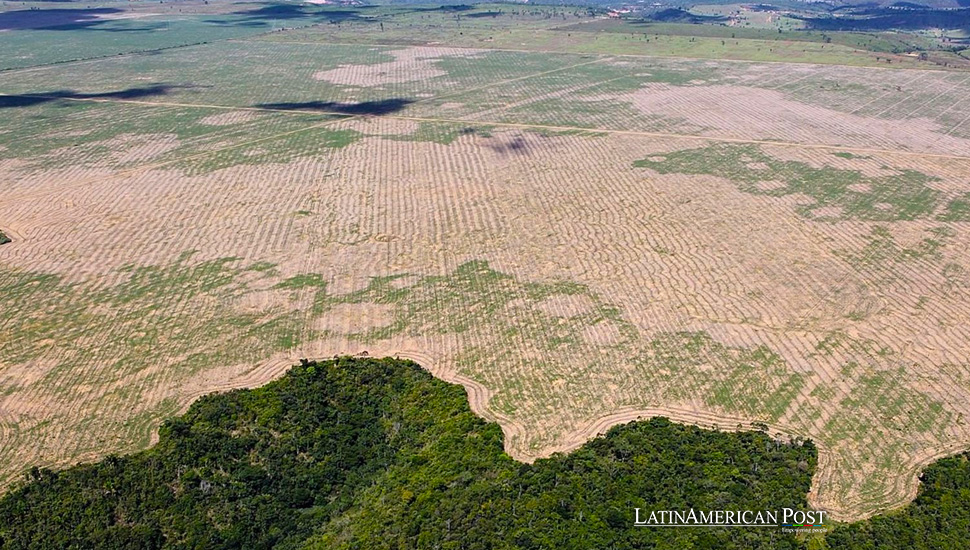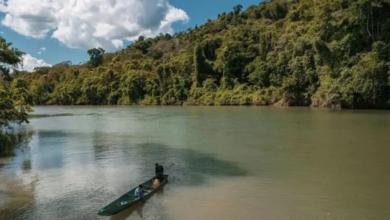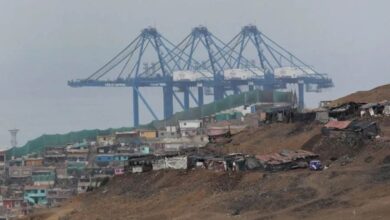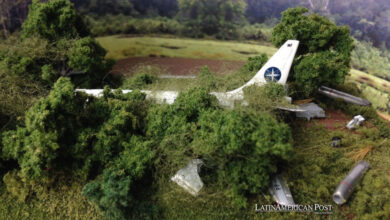Record Drought in Amazon as Climate Change Intensifies Environmental Crisis

A new study attributes a historic drought in the Amazon rainforest, causing river depletion and endangering wildlife, to climate change, amplifying concerns for the region’s future ecological balance and the global fight against climate change.
Unprecedented Drought Linked to Climate Change
A recent study has linked climate change to the unprecedented drought in the Amazon rainforest, a crisis that has led to river drainage, threatened endangered species, and disrupted the lives of millions. The study, conducted by World Weather Attribution, an international collective of scientists, sheds light on the alarming impact of global warming on one of the Earth’s most vital ecosystems.
The research, focusing on the period from June to November of the previous year, has found that climate change made this drought 30 times more likely. It has been a driving force behind extreme temperatures and reduced rainfall in the region. According to scientists, this drought, affecting all nine countries encompassing the Amazon – including Brazil, Colombia, Venezuela, and Peru – is expected to intensify in 2024.
Amazon Rainforest: Earth’s Crucial Climate Regulator
The world’s largest Amazon rainforest plays a crucial role in mitigating climate change due to its capacity to absorb significant amounts of greenhouse gases. The drought has led to some of the lowest river levels on record in parts of the Amazon, posing a severe threat to its biodiversity and the broader ecological balance.
Regina Rodrigues, a co-author of the study and researcher at the Federal University of Santa Catarina in Brazil, expressed deep concern for the health of the Amazon forest. The drought’s impact could exacerbate forest fires, which, combined with ongoing climate change and deforestation, risks pushing the Amazon towards an ecological tipping point. Beyond this point, the biome could dry out, losing its identity as a lush rainforest.
The study’s findings highlight the urgent need to address climate change and its cascading effects on ecosystems like the Amazon. The implications of this drought extend beyond regional environmental concerns, striking at the heart of global efforts to combat climate change.
The Amazon’s ability to function as a carbon sink is crucial in the global fight against rising temperatures. The current drought diminishes this capacity and raises the risk of releasing stored carbon back into the atmosphere, further exacerbating global warming.
Profound Impact on Communities and Wildlife
Moreover, the drought’s impact on local communities and wildlife is profound. Communities that depend on the Amazon’s rivers for transportation, fishing, and agriculture face severe challenges. The depletion of water resources threatens the survival of numerous species, including endangered dolphins. It disrupts ecological cycles vital for the rainforest’s health.
The situation in the Amazon is a stark reminder of the interconnectedness of global ecosystems and climate systems. What happens in the Amazon does not stay in the Amazon; it has international repercussions. The loss of biodiversity, the disruption of indigenous communities’ ways of life, and the potential release of greenhouse gases have implications for the entire planet.
Addressing the crisis in the Amazon requires a multi-faceted approach. It calls for aggressive global efforts to reduce greenhouse gas emissions and mitigate climate change. At the same time, there is a need for local and regional policies that protect the rainforest from deforestation and other human activities that exacerbate its vulnerability to drought.
International Cooperation: A Shared Responsibility
International cooperation is essential in this endeavor. The Amazon spans multiple countries, and its protection is a shared responsibility. Efforts must be made to support scientific research in the region, monitor ecological changes, and implement sustainable practices that balance economic development with environmental conservation.
Furthermore, the plight of the Amazon underscores the importance of understanding and preparing for the impacts of climate change on other critical ecosystems around the world. Similar scenarios may unfold in different regions as global temperatures rise, necessitating proactive measures to protect these natural assets.
Also read: Trinidad’s New Mud Volcanoes Are a Rising Geologic Concern
The record drought in the Amazon rainforest is a glaring manifestation of our planet’s climate crisis. It serves as a wake-up call to the international community about the urgency of addressing climate change and protecting vital ecosystems. The health of the Amazon is not just a regional concern but a global one, with far-reaching consequences for environmental stability, biodiversity, and the fight against climate change. As the situation develops, concerted efforts from all sectors of society will be crucial in safeguarding this invaluable natural treasure for future generations.





